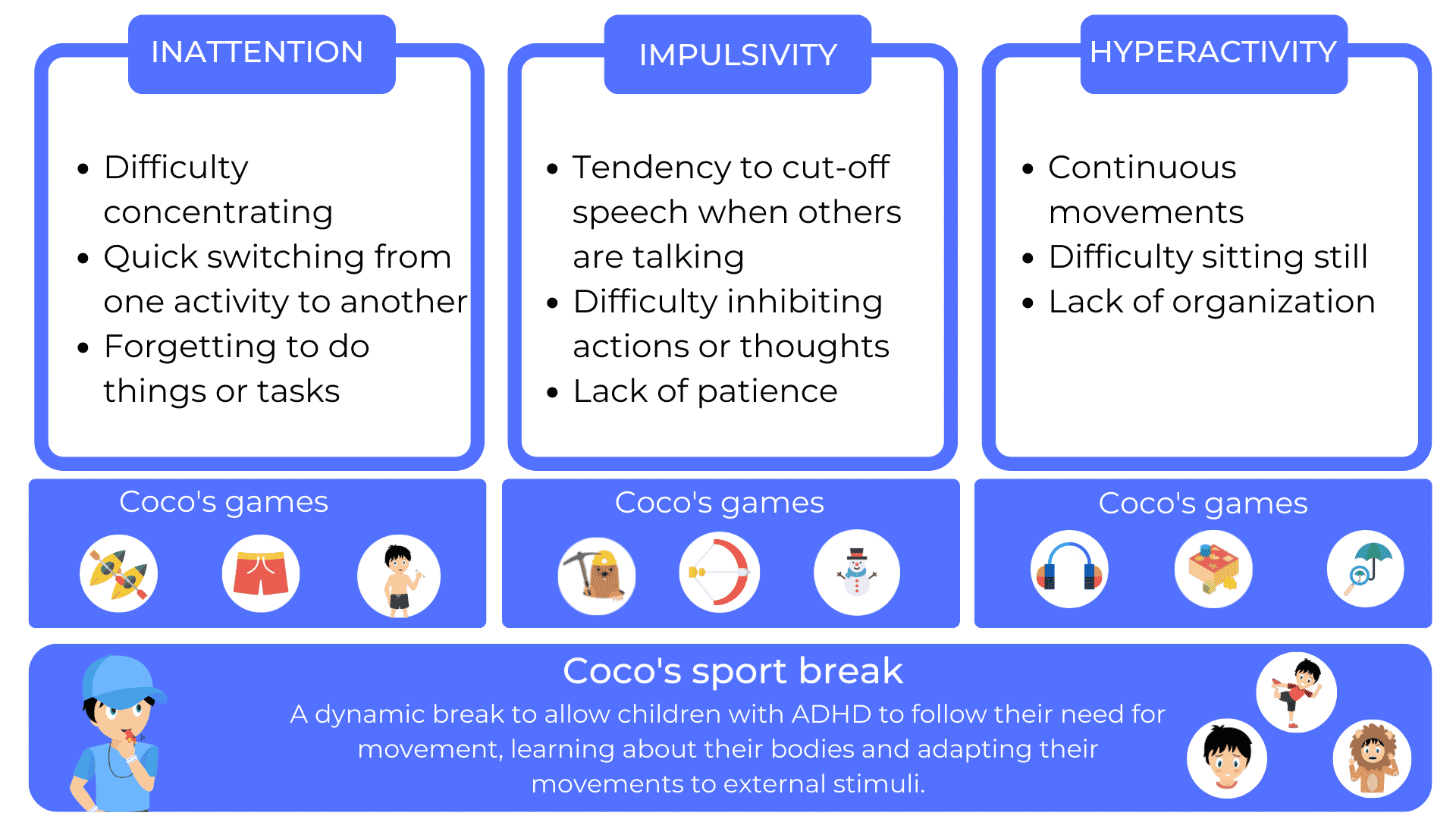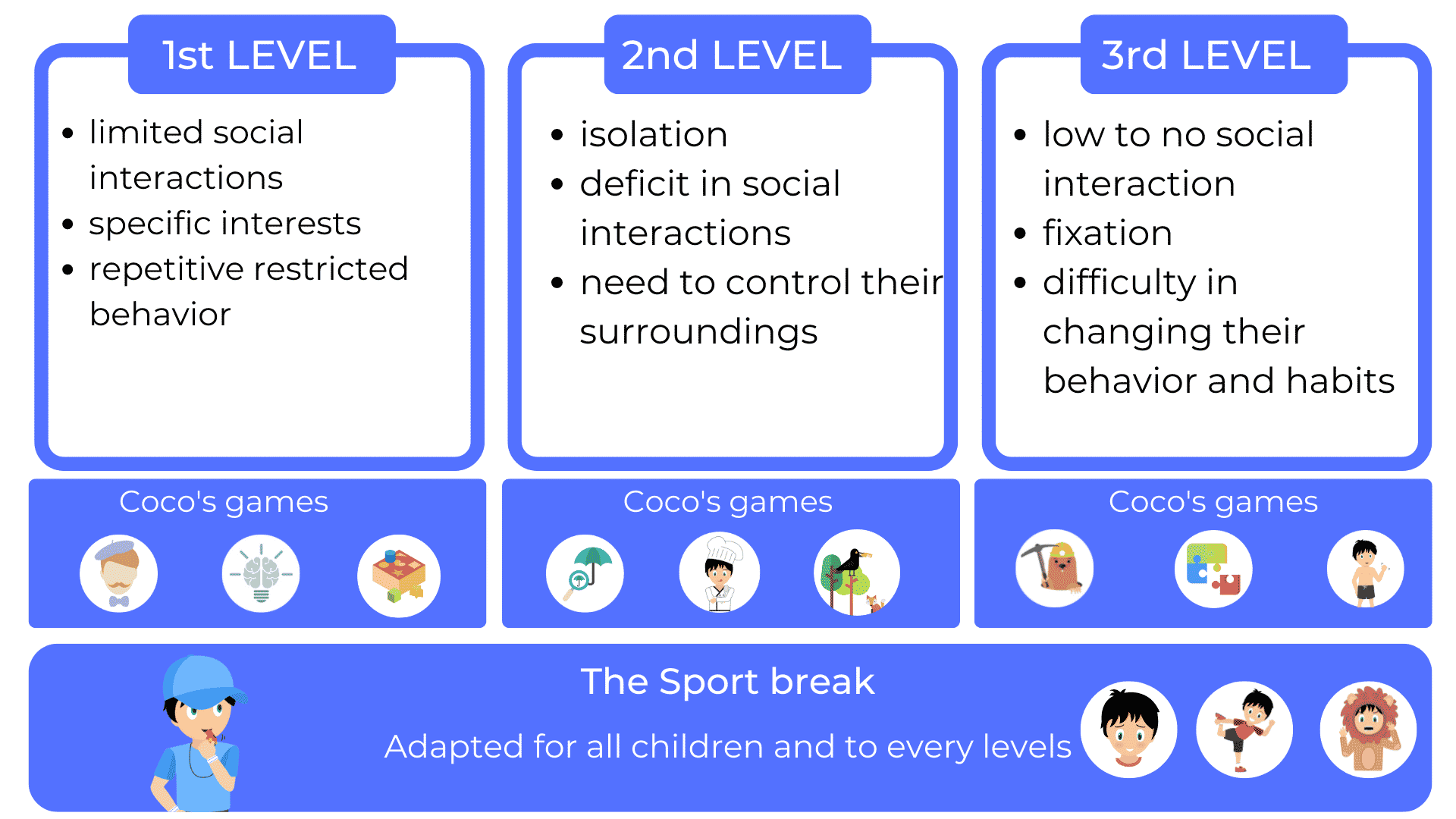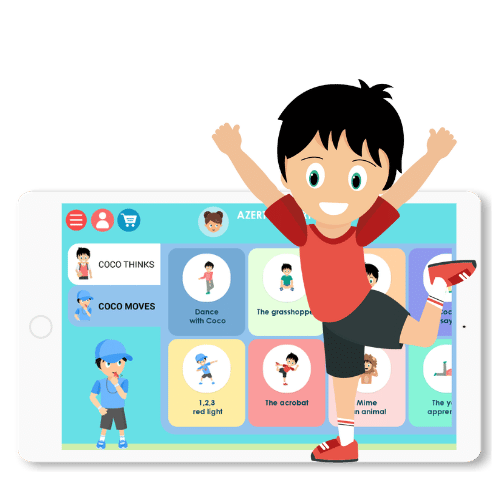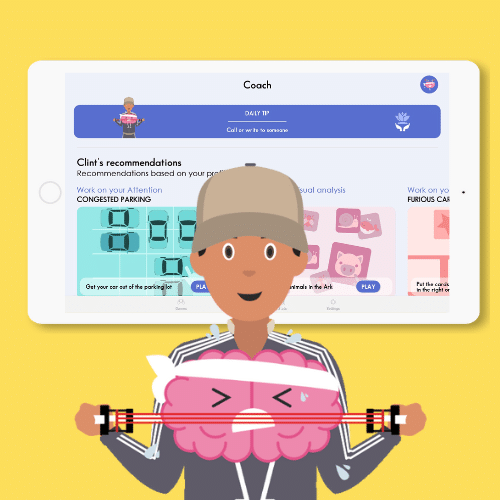Inhibition is a complex cognitive process that allows us to suppress or control our impulses, emotional and behavioral reactions. Inhibition plays a crucial role in our ability to regulate our behavior and adapt to complex social situations.
Definition of inhibition
Inhibition can be defined as the ability to suppress an automatic response or action in favor of one that is more appropriate to the situation. Inhibition can be applied to different levels of behavior, ranging from suppression of a motor response to suppression of an emotional or behavioral response.
Inhibition is a cognitive process that develops gradually throughout childhood and adolescence. Children tend to have more difficulty inhibiting their impulses than adults, which can lead to impulsive or aggressive behaviour.
Inhibition and motor skills
Inhibition is essential for motor coordination. For example, when we play tennis, we have to inhibit the impulse to hit the ball as soon as it comes within our reach. Instead, we have to wait for the right moment to hit the ball. Inhibition disorders can lead to difficulties in tasks that require precise motor coordination.
Motor inhibition disorders can manifest themselves in different forms. Tourette’s syndrome, for example, is a neurological disorder characterized by involuntary motor and vocal tics. People with this disorder have difficulty inhibiting their tics, which can lead to socially inappropriate behaviors.

In addition, motor coordination disorders may also be associated with inhibition disorders. Children with ADHD often have difficulty coordinating their movements, which can lead to difficulties in physical activities such as dance or sports.
Inhibition and attention
Inhibition is also important for attention and concentration. When faced with distractions, we must inhibit the impulse to respond to those distractions and maintain our attention on the task at hand. Inhibition disorders can lead to difficulties with concentration and sustained attention.
ADHD is a disorder commonly associated with difficulties with inhibition and concentration. People with ADHD often have difficulty inhibiting their impulses, which can lead to interrupting others or having difficulty waiting their turn. In addition, people with ADHD often have difficulty maintaining their attention on a given task, which can make them ineffective in school or work tasks.
Inhibition and behavior
Inhibition is also crucial for the control of our social behavior. For example, we need to inhibit the impulse to say something inappropriate or to react aggressively when a social situation becomes tense. Inhibition disorders can lead to impulsive or aggressive behaviour. People with inhibition disorders may have difficulty controlling their anger, frustration and impulsivity. For example, some people with borderline personality disorder may have difficulty inhibiting impulsive behavior and controlling themselves emotionally.
Inhibition disorders can also be linked to eating disorders such as anorexia or bulimia. People with these disorders often have difficulty inhibiting their eating impulses, which can lead to extreme eating behaviors.

Disorders related to inhibition
Inhibition disorders can have devastating effects on a person’s daily life. Inhibition disorders can lead to difficulties in social relationships, work activities and activities of daily living.
Supporting a child with ADHD
Attention Deficit Hyperactivity Disorder (ADHD ) is one of the most common disorders associated with inhibition difficulties. People with ADHD often have difficulty inhibiting their impulses, which can lead to interrupting others, having difficulty waiting their turn, and engaging in impulsive behaviors.

Accompanying a child with autism
Autism spectrum disorders (AS D) are also associated with inhibition difficulties. Individuals with ASD may have difficulty inhibiting repetitive behaviors and maintaining attention on a given task.

Borderline personality disorder is also associated with inhibition difficulties. People with this disorder often have difficulty controlling their emotional impulsivity and maintaining stable social relationships.
How to improve inhibition
Inhibition disorders can be improved with psychological and behavioral interventions. Cognitive and behavioral therapies can help people develop strategies to regulate their impulses and improve their emotional control.
Mindfulness-based interventions can also help people improve their ability to inhibit impulses and control their behavior. Mindfulness techniques can help people become aware of their emotions and impulses and regulate them effectively.
Exercise can also help improve inhibition. Regular exercise can help improve motor coordination and reduce impulsive behavior.
In addition, it is important to maintain a healthy and balanced lifestyle. Individuals should strive to eat healthy, get enough sleep and manage stress effectively. A healthy lifestyle can help improve emotional regulation and reduce impulsive behavior.
In conclusion, inhibition is a complex cognitive process that is essential for the control of our behaviors and emotions. Inhibition disorders can lead to difficulties in motor coordination, concentration, control of impulsivity and social behavior. However, it is possible to improve inhibition through cognitive and behavioral exercises.
COCO THINKS and COCO MOVES, to work on inhibition in children
COCO THINKS and COCO MOVES is an application for children from 5 to 10 years old with educational and sports games. In the application you have more than 30 games to work on cognitive functions, such as inhibition. Through fun and adapted games, children can learn at their own pace or review the school program.
Finally, after 15 minutes of screen time, the application stops to propose a sports break to the child. This break allows the child to air his brain and learn a balanced use of screens. Sports activities are important for the development of the child and to improve inhibition.

Download the worksheets to help your child review the curriculum
CLINT, to work on inhibition for adults
Clint is an application with over 30 cognitive and cultural games to work on cognitive functions, such as inhibition. The application is suitable for adults at the prevention level or with mild autistic or post-stroke disorders. The activities can be adapted to your needs and you can follow your progress over time directly in the application. In addition, you can find training programs to improve one or more cognitive functions, with a recommendation of games, practical tips and strategies.

Other articles that might interest you:
How Parents Can Contribute to Teacher Training
As we delve into the realm of education, it becomes increasingly clear that teacher training is not merely a...
Differentiated Instruction Approaches: Training and Practical Application
Differentiated instruction is a pedagogical approach that recognizes the diverse needs of students in a classroom. It...
Key Skills Teachers Need to Support Students with Special Needs
As we embark on our journey to support children with special needs, it is essential for us to cultivate a deep...







